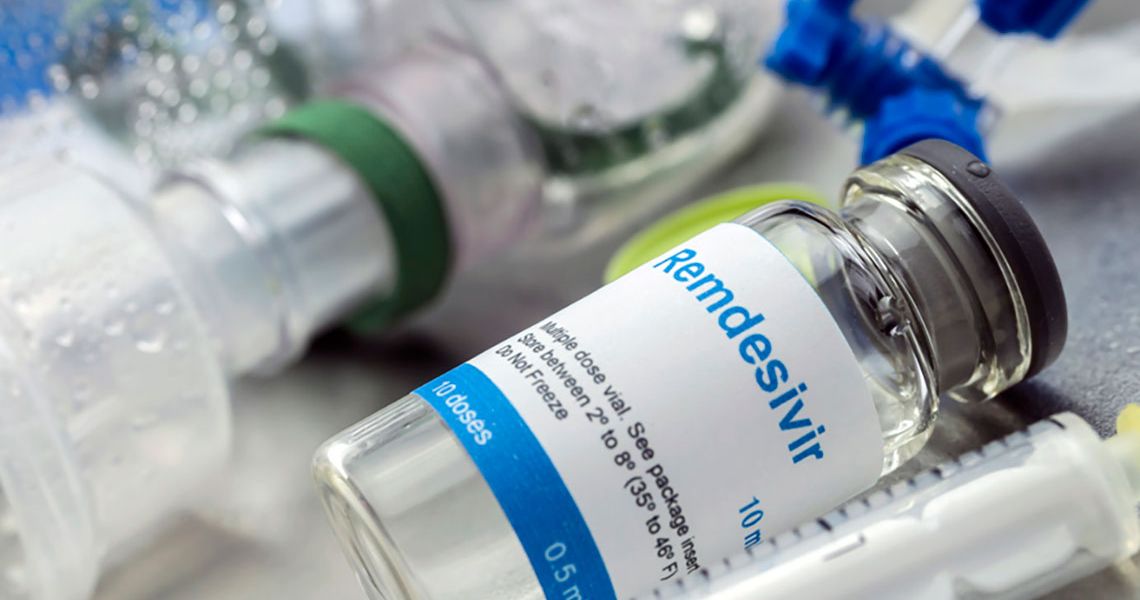In the past few months remdesivir has become a household name as an important therapeutic used in the fight against COVID-19. On Oct. 4, the leading researcher behind the treatment, Richard Whitley, MD ’71, of the University of Alabama at Birmingham (UAB), discussed COVID-19 and remdesivir.
He shared his research and experiences at the 9th Annual Frank N. Miller Lecture during the George Washington University (GW) School of Medicine and Health Sciences Virtual Reunion Weekend 2020. The lecture is named for Frank N. Miller, MD ’48, BS ’43, a professor emeritus of pathology, a dean of students and curricular affairs, and a chair of the Department of Pathology at SMHS from 1944 to 1985. Whitley was a student in Miller’s Shakespeare in Medicine class when he was a student at GW.
Whitley, who serves as a Distinguished Professor of Pediatrics; professor of microbiology, medicine, and neurosurgery; vice chair of the Department of Pediatrics, and member of the O’Neal Comprehensive Cancer Center at UAB, is the primary investigator on a National Institute of Allergy and Infectious Diseases (NIAID) Centers of Excellence for Translational Research grant for research into remdesivir.
The drug was originally developed to treat the coronavirus responsible for MERS, or Middle East Respiratory Syndrome, and was being studied through the five-year, $37.5 million NIAID grant awarded to UAB’s Antiviral Drug Discovery and Development Center, or AD3C.
Whitley said drug development for emerging infections will always be needed, because they are not going to go away and will only increase in prevalence in the future due to things like deforestation, climate change, and increased transportation.
Coronaviruses are key players in the work AD3C does, he added, and that takes dedicated teamwork and commitment. “No one individual can do the work that this group does,” he said. “It takes all of us working together to try and solve these problems.”
Whitley described the evolution of coronaviruses and COVID-19 in particular, which is suspected of having bats as its origin before an intermediary host of most likely pangolins.
“I call COVID-19 the plague of the 21st Century,” he said.
Remdesivir, developed by biopharmaceutical company Gilead through a public-private partnership with UAB, has been one of the main treatments getting attention as a COVID-19 therapy; it was among a cocktail of drugs used to treat President Donald Trump shortly after he contracted the virus. It is being administered under FDA emergency use for patients who are hospitalized and very ill, Whitley noted, as well as being used in hospitalized patients who have an oxygen requirement.
In a study, remdesivir was found to help patients get better faster, decreasing hospital stay by four days, Whitley noted.
He also spoke about another drug in Phase II clinical trials, N-Acetyl Cysteine (NAC). Early data on the treatment, he said, shows “it has significant effect in decreasing lung hemorrhage and concentration of virus in the lung, and improves pulmonary function.” He added that it mutagenizes the viral genome, so it’s not a treatment that could be administered long-term because it will have significant toxicity. This drug, unlike remdesivir, can be given to patients orally. Remdesivir’s “Achilles heel,” Whitley admitted, is the fact that it must be administered intravenously.
At the end of his lecture, Whitley took questions from some of the more than 115 alumni who tuned in to the virtual event.
He answered one query about the public-private partnership between Gilead and UAB, saying he built up trust with the company’s chief science officer to create a trusting relationship. “We had the animal models and capability for cell culture work Gilead didn’t have,” he said.
He also addressed disparities being seen in underrepresented communities when it comes to COVID-19 infection and mortality rates, and noted that getting them the care they need is based in trust.
“There is a lack of trust on the part of underrepresented communities,” he noted. “It takes a significant effort from community representatives who have the trust of people who live in those communities to recruit volunteer’s to participate in studies.”
When asked about lessons learned during the HIV epidemic that are informing work during the pandemic, Whitley pointed to the success at GW.
“This institution has been able to build trust in the D.C. community going back to the studies we’ve done with HIV and HCV,” he noted. “Keep doing what you’re doing, because you’re doing it right.”



